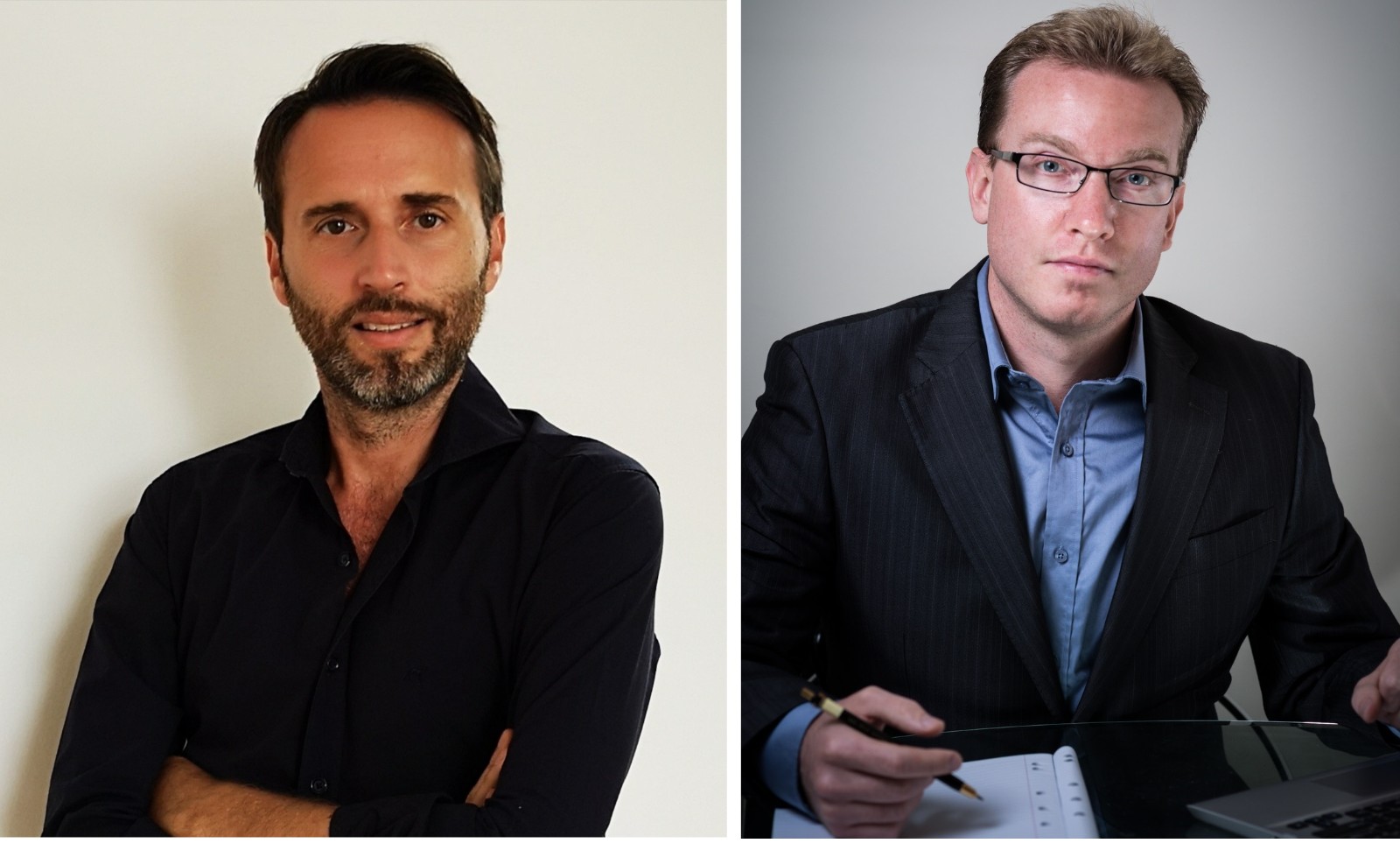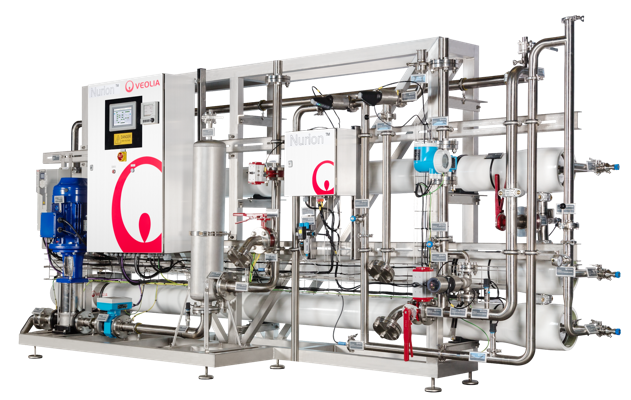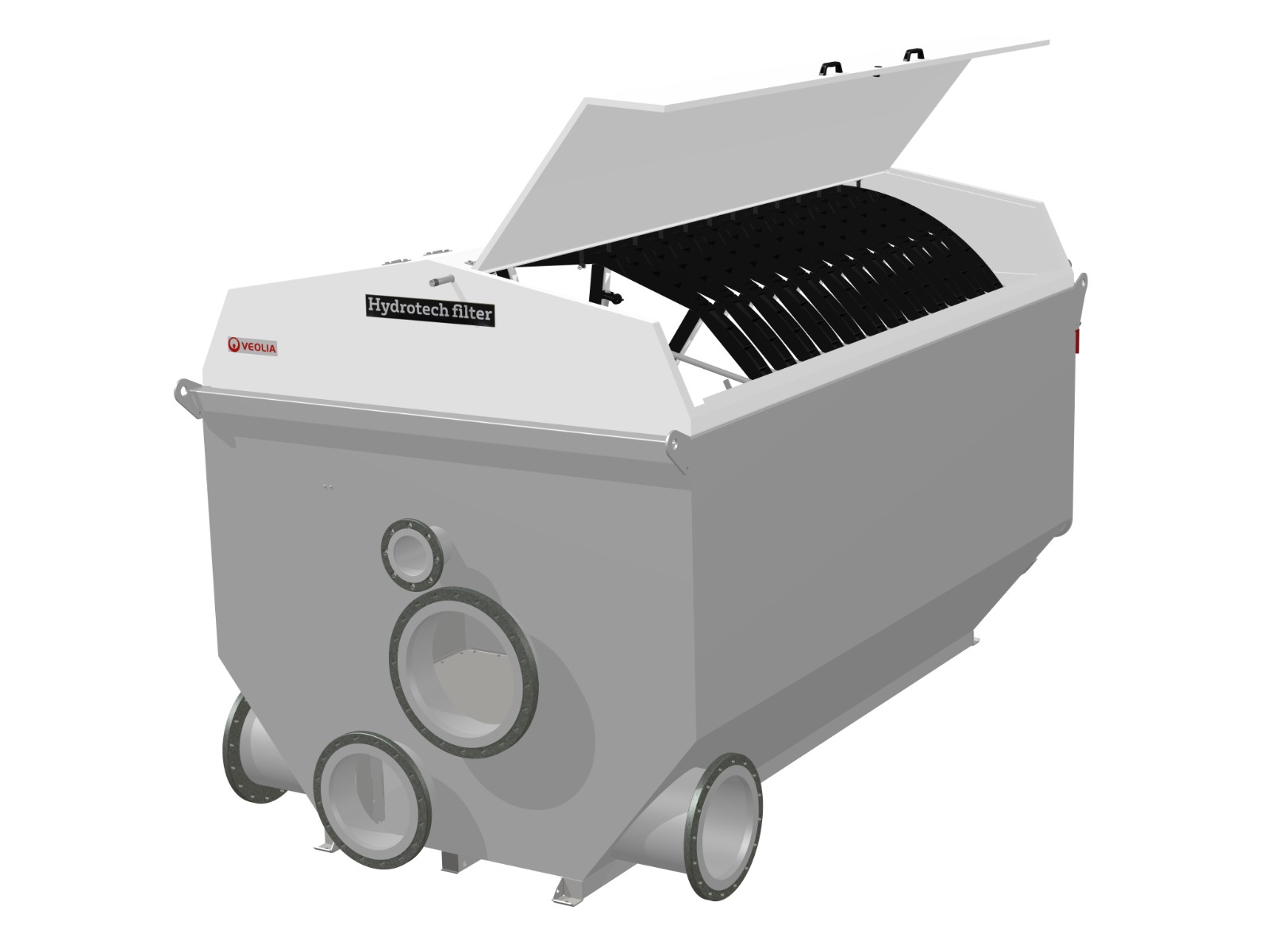A number of manufacturers in Asia have relied on Veolia Water Technologies to help them meet industry standards especially when it comes to the safety and quality of water utilised in food and beverage processing. In this report, Mathieu Le Noir, Director of Distribution & Standard Products (Asia Pacific) and Thomas Debruyne, Market Manager (F&B) & Digital Transformation Manager (Asia Pacific) from Veolia Water Technologies talk to FoodPacific Manufacturing Journal about the potential of their technologies in Asia.

(From left) Mathieu Le Noir, Director of Distribution & Standard Products (Asia Pacific) and Thomas Debruyne, Market Manager (F&B) & Digital Transformation Manager (Asia Pacific,) Veolia Water Technologies.
What are some of Veolia’s observations of the Asian market?
Mathieu Le Noir: The Asian market is one with significant growth potential. Governments in the region are introducing new policies and standards for water management and manufacturing practices — generating greater interest in advanced solutions. The region is also witnessing an increase in demand for transparency in claims and labelling, manufacturing consistency across facilities, and for improved safety requirements.
These demands have brought about new challenges for the food and beverage (F&B) industry — making this the fastest growing industry in the region. This is especially significant as the top F&B manufacturers and exporters in the world are located in Asia Pacific.
Can you share some insights on the food and beverage market in Southeast Asia?
Thomas Debruyne: Southeast Asia’s rapidly increasing population and income, coupled with higher consumer expectations (for taste and premium or westernised options), are attracting both new players and multinational corporations into the flourishing food and beverage (F&B) industry. This trend is especially pronounced in Indonesia and the Philippines.
Although the F&B industry alone consumes up to 70% of available global freshwater resources, too many manufacturers in the industry still subscribe to the notion that water is readily available, and are therefore unwilling to invest in water management and treatment solutions. Manufacturers who do decide to invest in water management solutions typically zoom in on requirements such as high efficiency and small footprint. Unlike manufacturers in industries with stricter regulations, such as the pharmaceutical industry, F&B manufacturers often do not prioritise concerns over regulatory requirements. Such perceptions are gradually changing, albeit at a slower rate, and this change is imperative for the industry to not only grow but to also advance.
These factors, together with rising demand for freshwater from increased manufacturing activities, makes the F&B market an exciting space for us to be serving. Veolia is well-equipped to address many of the risks that come with the industry’s growth, such as water scarcity, reputation management, and regulatory compliance.
What are the needs, challenges, and the opportunities in this sector?
Debruyne: The competitive business environment is driving manufacturers to transform traditional F&B manufacturing practices. Manufacturers in particular are now forced to leverage on innovations, integrate new technologies to current processes, and to develop new solutions to address evolving market demands.
With the uncertainties bought about by the COVID-19 pandemic, manufacturers are now beginning to examine the latest technologies for water and wastewater treatment, including recycling, while striving to minimise capital expenditures. Many are opting for leasing or mobile options, as opposed to spending large sums on turnkey solutions for their facilities. In addition, the importance of technical skills and support has also gained much prominence during this period due to challenges and safety concerns over travelling, resulting in a rise in demand for 24/7 remote support.
Tell us about these water treatment solutions, and about turnkey projects in particular.
Debruyne: Turnkey projects refer to engineering, process design and the management of delivery and construction for plants and facilities. While some manufacturers may prefer the idea of a tailor-made turnkey project, many are even more concerned about turnaround time and cost incurred. In response to this, Veolia now offers pre-engineered and packaged treatment solutions which allow our customers to tap on our technological expertise while enjoying faster delivery and cost-effective options to meet their requirements.
An up-and-coming trend in F&B manufacturing, especially for dairy products and baby formulas, is the adoption of treatment solutions that employ a hygienic design. Hygienic design plays an important role in ensuring the safety and quality of F&B products through features like prevention of microbial contaminations and reduction of the need for cleaning supplies. While the employment of hygienic design is not currently a requirement in Asia, it is a guideline for manufacturers in Europe and Veolia sees the immense potential for such solutions in the growing Asia Pacific F&B market.

Nurion™ is a skid-mounted, reverse osmosis (RO) system that was developed based on two main principles — a hygienic design and the production of high-quality, compliant ingredient water.
Le Noir: One of our key solutions that caters well to this trend is the innovative Nurion™ system. Nurion™ is a skid-mounted, reverse osmosis (RO) system that was developed based on two main principles — a hygienic design and the production of high-quality, compliant ingredient water. Instead of re-engineering to comply with hygienic design, manufacturers now have a cost-effective option with Nurion™, which is pre-engineered and can be delivered quickly. Chlorate is a common contaminant in F&B products that are produced with untreated municipal water sources. As there are currently no known means of removing chlorate from milk, the only solution is for dairy product manufacturers to remove traces of chlorate from the ingredient water and from the water used for cleaning. Compared to other RO systems used in the F&B industry, the unique Nurion™ RO system uses specific membranes to help a plant achieve its chlorate concentration targets in the treated ingredient water (usually less than 10 parts per billion). In addition, the Nurion™ system’s partial hygienic design also enables increased intervals for the regular offline sanitisation process that helps to control microbial growth in RO plants. As a result, plant availability for production increases, and businesses can also reduce operating costs as they significantly reduce consumption of sanitisation chemicals and wastewater production volumes associated with cleaning processes.

The Hydrotech Drumfilter is a mechanical, self-cleaning filter suited for industrial wastewater recovery. It can deliver higher filtration capacity within a small footprint.
Veolia’s Hydrotech Drumfilter is another solution that readily addresses the F&B industry’s demand for compact solutions that can be architecturally integrated with ease. The Drumfilter is a mechanical, self-cleaning filter suited for industrial wastewater recovery. Featuring Hydrotech Microscreens, the Drumfilter is designed to help users achieve high performance in treatment systems where particle fragmentation needs to be prevented. The absence of pressure and the filter’s few moving parts also ensures a longer system life and lower maintenance costs for manufacturers. The Drumfilter’s efficient design makes it a good choice for manufacturers concerned about space constraints as it is capable of delivering higher filtration capacity within a small footprint. It is used as one within a series of processes to deliver better effluent quality to help manufacturers meet regulatory requirements or achieve their effluent quality targets.
Are you currently working on a project for a manufacturer in the region? What does the project entail?
Le Noir: One of our recent installations was at a facility in Indonesia that mainly produces infant formula and cereal. The manufacturer desired to limit chlorate traces in all their products. However, as the municipal water source contained a high level of chlorate and as sodium hypochlorite dosing was part of their existing water treatment processes, the plant struggled to achieve the manufacturer’s goal with the existing solutions. With Veolia’s expertise, the manufacturer removed sodium hypochlorite dosing and added a Nurion™ RO system to its process line. This optimisation allowed the manufacturer to achieve a low chlorate level of below 10 parts per billion, therefore ensuring the quality and safety of their infant formula and cereal products.
Another example is our award-winning project at the Associated British Foods Thailand’s (ABFT) Ovaltine plant in Thailand. Here, we focused on treating the raw wastewater to enable safe discharge into local streams. The addition of a second dissolved air flotation (DAF) clarifier and a Drumfilter system to the wastewater treatment process helped ABFT ensure that the treated wastewater complies with local discharge standards and aligns with its global environmental sustainability goals. The Drumfilter features a larger filter area to promote higher efficiency levels, and provides an extra layer of security to remove any remaining suspended solids from the wastewater. This made it an ideal design for treating wastewater in ABFT’s space-constrained environment, while ensuring a high-quality effluent.
Has there been changes in Veolia as a result of the COVID-19 pandemic? While it may be difficult to project ahead to 2021, what plans are in the offing for Veolia?
Le Noir: Veolia continues to look ahead to keep up with the myriad of challenges faced by water and wastewater professionals. The COVID-19 pandemic has affected global travel, and this has resulted in greater demand in our industry for appointing the right people with the right skill set at the right time in response to technical problems that plant operators may face. For Veolia, besides offering the latest water and wastewater treatment technologies, we also have strong capabilities to support our customers around the globe via our wide network of local support staff and international technical experts.
Debruyne: We also see opportunities for our cloud-based AQUAVISTA™ digital platform to help manufacturers achieve operational resilience during these uncertain times. AQUAVISTA remotely enriches the users’ aggregated data through a combination of algorithmic applications and human process expertise. With this solution, F&B manufacturers can achieve operational efficiency and quality compliance, and process water or wastewater treatment plants can be monitored and optimised round the clock, even if their staff cannot or should not access a site. Furthermore, through the incorporation of a new Augmented Reality solution, Veolia’s AQUAVISTA platform will soon also offer a library of step-by-step instructions to guide customers through resolving a wide range of issues. Customers can also collaborate with Veolia’s engineers in real-time to conduct virtual visits for inspections or visual verification of equipment and network layouts. With a digital solution like AQUAVISTA, manufacturers can reduce the problem of industrial machine downtime, boost round-the-clock availability that keeps their utilities running smoothly, and improve overall operational resilience.
Le Noir: Above all, Veolia recognises that our competitive advantage is in our advanced technologies and industry expertise. Hence, we are focusing on how we can turn even the most innovative technologies into robust solutions that can be mobilised swiftly and at a competitive rate. We are also developing a strategic network of distribution partnerships to bring our solutions to more customers.














